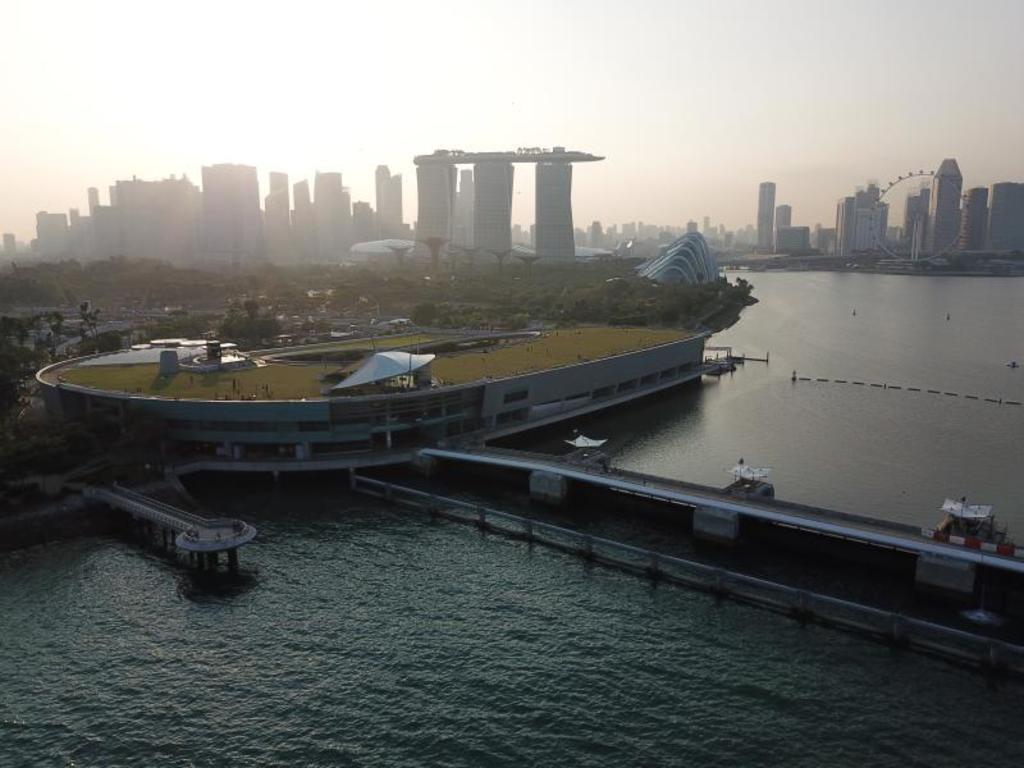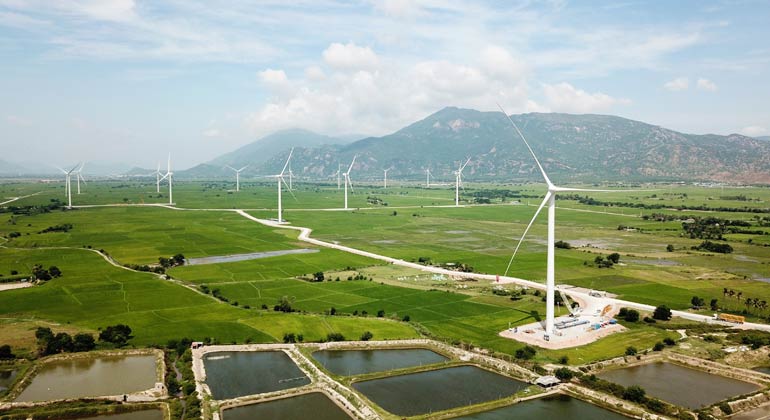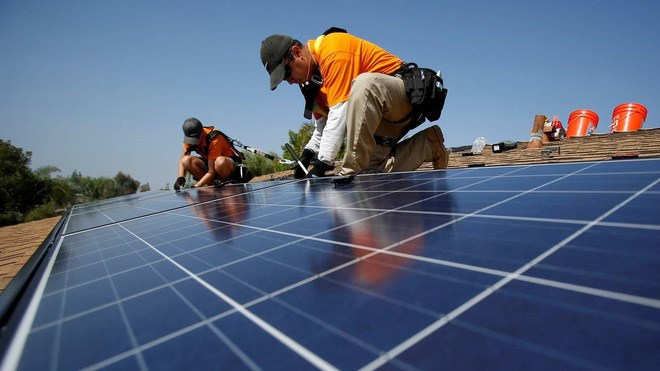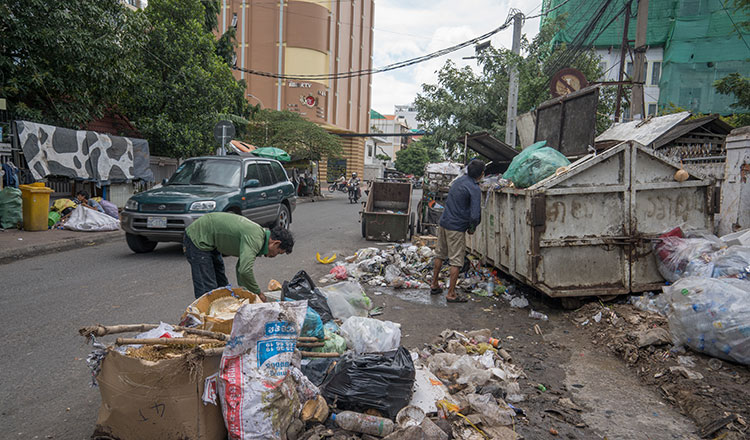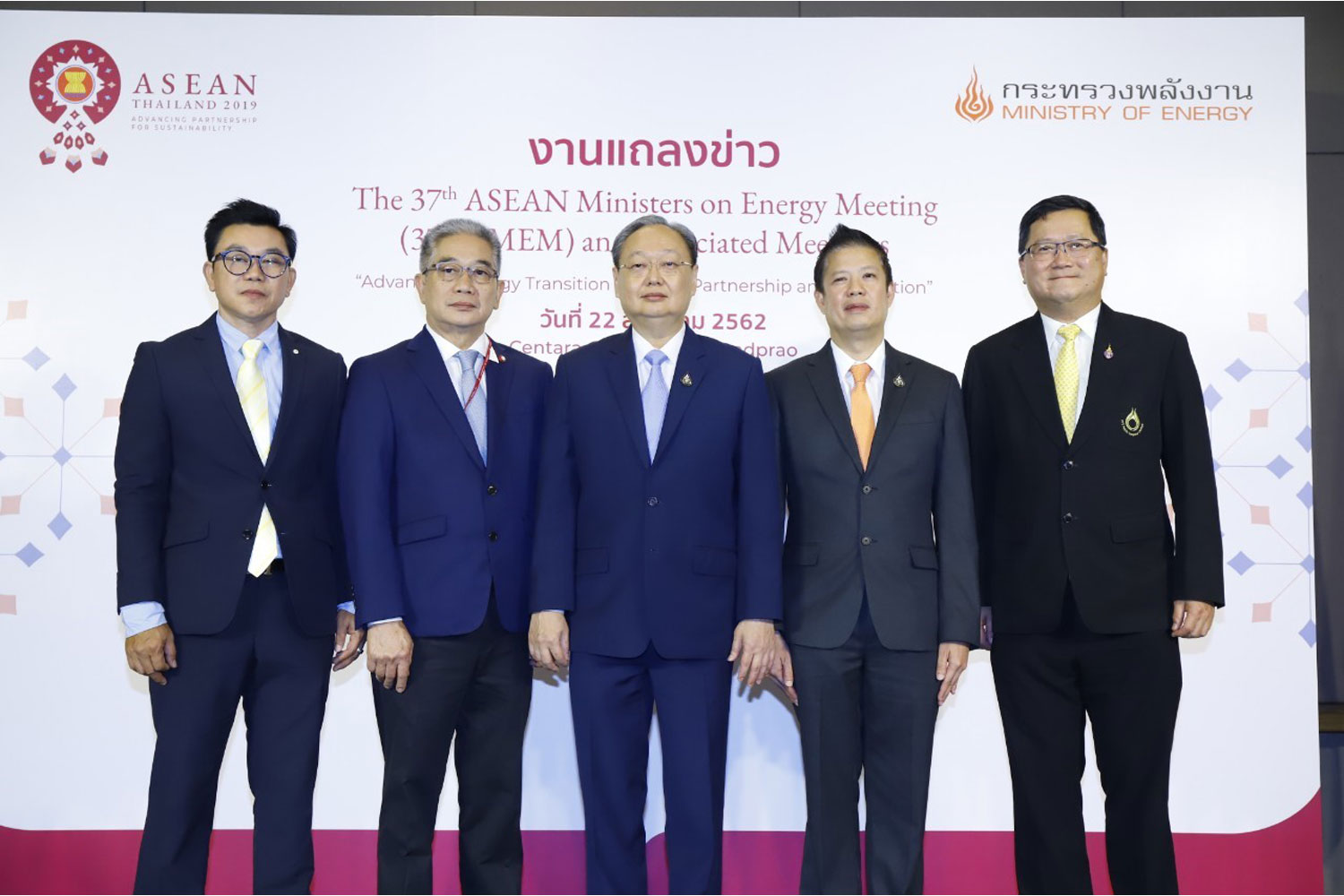- Energy-Climate & Environment
–
- Singapore
SINGAPORE — A “50- to 100-year problem” was how Prime Minister Lee Hsien Loong described the “grave threat” of rising sea levels to Singapore.
While a hundred years from now seems far away, Singapore has already started to feel the impact of climate change with hotter weather and heavier rainfall in recent years. Studies have also shown that Singapore could experience more extreme weather patterns as soon as 2050.
Indeed, steps are already underway to mitigate the impact of rising sea levels. For example, Singapore has introduced a carbon tax to nudge companies to cut down on greenhouse gas emissions. It has also begun building infrastructure such as train stations on elevated ground.
More measures are in the pipeline. How much time does Singapore have to make sure that it is sufficiently ready? TODAY takes a closer look.
HOW WAS THIS TIMEFRAME DERIVED?
The 50- to 100-year timeline is based on the findings of a study by the Centre for Climate Research Singapore (CCRS) in 2015, the Ministry of the Environment and Water Resources (MEWR) said.
This study used climate modelling technology to forecast the potential impact of climate change on Singapore, based on different scenarios of global greenhouse gas emissions.
For example, the study found that if greenhouse gas emissions stay high and continue to increase throughout the 21st century (let’s call this the “high emission scenario”), there will be a total rise of 0.45m to 1.02m in sea levels around Singapore by the year 2100.
If greenhouse gas emissions peak mid-century and then decline (let’s call this the “controlled emission scenario”), sea levels around Singapore will still rise, but not as much. The CCRS forecasts that under this scenario, they would rise between 0.3m and 0.74m by 2100.
These are its full forecasts for sea level rises by 2050 and 2100:
Year 2050 2100
Range of projection for sea-level rise Lower Median Upper Lower Median Upper
Controlled emission scenario 0.14 0.22 0.30 0.30 0.53 0.74
High emission scenario 0.17 0.25 0.32 0.45 0.73 1.02
The CCRS also noted that an earlier report by the Intergovernmental Panel on Climate Change (IPCC) said global average sea levels are likely to rise between 0.45m and 0.82m from 2081 to 2100.
It gave this mildly reassuring statement: “Only the collapse of marine-based parts of the Antarctic ice sheet, leading to glacier acceleration and thinning, could cause global average sea level to rise substantially above this range during the 21st century, and while the risk of this is not precisely quantified, current research gives medium confidence that the additional sea level rise would not exceed a few tens of centimetres this century.”
Rates of sea level rise due to glacial melt and ice sheet melt are somewhat higher for Singapore than many other countries due to its position near the equator, the CCRS noted.
The response of different processes around the world to global temperature rise also means that estimates of average sea level rise for Singapore differ from the global average, the CCRS said.
Furthermore, there are local factors affecting sea level extremes, such as waves, surges and tides around the coasts of Singapore.
SO DOES THIS MEAN THINGS WILL ONLY GET SERIOUSLY BAD IN 50 TO 100 YEARS?
Actually, things are about to get rough pretty soon, if there is no action to stop climate change.
A recent study by Crowther Lab, a research group based at Swiss science and technology university ETH Zurich, found that Singapore would be one of several cities experiencing unprecedented climate shifts by 2050, with its temperatures rising by 1.3°C.
The study also found that a fifth of the world’s cities, including Singapore, will experience more intense dry and monsoon seasons. Singapore, being a tropical country, could also face more severe flooding and droughts.
The IPCC special report released last year called for countries to urgently cap the increase in average global temperatures to 1.5°C above pre-industrial levels, which is in line with the goals of the Paris Agreement.
The special report found that at the current level of emissions, the world could pass the 1.5°C mark as early as 2030 and could rise another 2°C to 3°C if there is no sharp reduction in carbon emissions. The Paris Agreement stressed that any rise in temperatures beyond 2°C could see the worst effects of climate change.
The United Nations has described a devastating picture for the world if this happens, with more frequent very hot days in the tropics and the disappearance of most coral reefs. Rising sea levels could cause massive refugee flows from low-lying areas and major food security problems.
In a commentary for TODAY, Professor Benjamin Horton, the chair of the Asian School of the Environment at the Nanyang Technological University (NTU), said that warming seawater and melting glaciers and ice sheets have accelerated the rise in sea levels.
Some studies had found that there is a one in 20 chance that sea levels in Singapore could rise in excess of 2.5m by the end of the century, significantly more than the 1m quoted by Mr Lee at the rally, he noted.
SO WHAT IS SINGAPORE DOING ABOUT IT NOW?
Singapore is already part of global efforts to reduce carbon emissions.
According to the IPCC, carbon pollution will need to be cut by 45 per cent by 2030 from 2010 levels and brought down to net zero by 2050 to ensure that average temperatures do not rise more than 1.5°C beyond pre-industrial levels.
The Paris Agreement, to which Singapore is a party, also stipulates that signatories come up with “concrete, realistic plans” to determine their national contributions to net zero emissions by 2050.
The Singapore Government has put in place several measures to meet the Paris goals. They include introducing a carbon tax of S$5 per tonne of greenhouse gas emissions, which came into force this year. The Government plans to lift it to between S$10 and S$15 per tonne of greenhouse gas emissions by 2030.
Currently, Singapore contributes 0.11 per cent of global emissions.
WHAT ABOUT LONGER-TERM MEASURES?
To combat rising sea levels in the years ahead, the Government has been building infrastructure at higher levels, such as elevated entrances for MRT stations.
New developments are also required to be at least 4m above mean sea level, instead of 3m previously, while critical infrastructure such as Changi Airport Terminal 5 and Tuas Port will be built at least 5m above mean sea level.
There are also plans to build an additional pump house at Marina Barrage.
The other two options to protect Singapore’s coastal defences are to either build dykes and polders along the eastern coastline, or to reclaim a series of islands from Marina East to Changi and then connect them up with barrages to create a reservoir.
SHOULD SINGAPORE BE ACTING MORE QUICKLY?
While experts told TODAY said that Mr Lee’s announcements were “bold”, “timely” and “impressive”, they warned that 100 years may be too long a wait if sea levels rose higher and faster than current estimates.
Prof Horton said that if Singapore faced high rates of sea-level rise, polders would be expensive to maintain as they would need to be deeper.
He emphasised that any solution adopted by Singapore should first be accompanied by “robust accurate local projection” of rising sea levels, which he called one of the major challenges for science over the next decade.
“Singapore must invest in the science of sea-level rise before it spends up to S$100 billion on adaptation measures,” he said.
And if the science shows that sea-level rises are much higher and faster than the projected 1m by 2100, then the time to deal with the threat and implement adaptive measures will be “significantly shortened”.
A lead author of the IPCC’s upcoming sixth assessment report, Dr Winston Chow of the School of Social Sciences at Singapore Management University, concurred with Prof Horton.
He said that the effectiveness of the solutions proposed by the Government would depend on several factors such as estimates of the rise in sea levels for Singapore.
It would also depend on the costs and benefits involved in implementing and maintaining the proposed solutions, especially when sea levels will likely continue rising beyond a hundred years.
For Associate Professor Adam Switzer from the Asian School of the Environment at NTU, solutions to deal with rising sea levels would have to be in place as soon as possible.
“There is an urgency to this. Singapore already experiences nuisance flooding in some locations during the highest yearly tides or in combination with local storm surges,” said Assoc Prof Switzer, who specialises in geographical changes around coastal areas.
“These are bold plans and they will take time to put in place,” he said. “The longer we wait, the higher the cost will be.”
Read more at https://www.todayonline.com/singapore/explainer-how-much-time-does-singapore-have-build-its-response-climate-change


